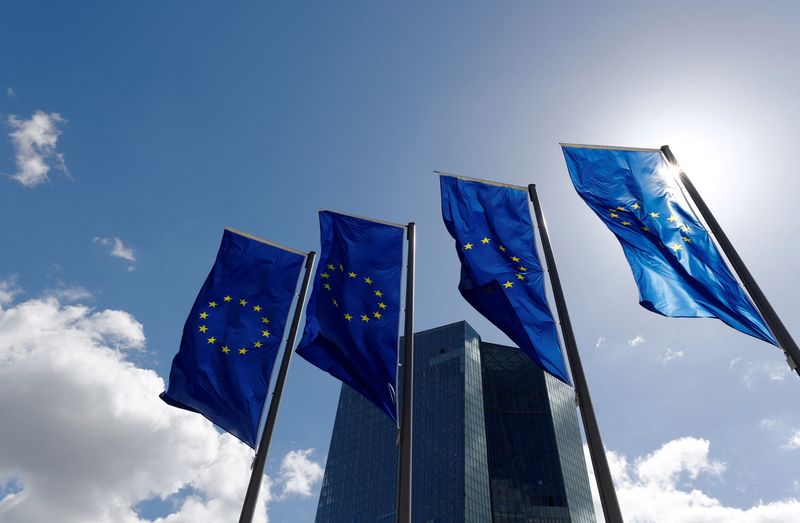FRANKFURT (Reuters) - The European Central Bank will have to raise interest rates several more times to tame price pressures, even if headline inflation is now close to its peak, ECB chief economist Philip Lane told the Milano Finanza.
"We do expect that more rate increases will be necessary, but a lot has been done already," the paper quoted Lane as saying on Tuesday. "I would be reasonably confident in saying that it is likely we are close to peak inflation."
Having raised rates by a combined 200 basis points (bps) since July to fight off record high inflation, the ECB has signalled a slowdown in the pace of monetary tightening this month after back-to-back 75 bps point moves.
This points to a 50-bps hike in the ECB's 1.5% deposit rate on Dec. 15 before a string of further moves in 2023 that could carry the deposit rate to the vicinity of 3%.
Lane did not explicitly endorse a 50 bps move over a bigger increase but repeated his case for a slowdown.
"We should take into account the scale of what we have already done," said Lane, who makes policy proposals for the rate-setting Governing Council. "So the basis for the decision will be different."
At 10.0%, inflation may have already peaked but its decline will be slow over the coming months and upticks in early 2023 are still a possibility.
"Given the significant increase in (natural gas) prices, I don’t rule out some extra inflation early next year," Lane said. "The journey of inflation from the current very high levels back to 2% will take time."

More worrying for policymakers, underlying price growth, which filters out volatile energy and food prices, could still accelerate from its latest 5% reading, and could take even longer to decline.
This is due to past energy price increases, which are still filtering into other sectors, particularly services.